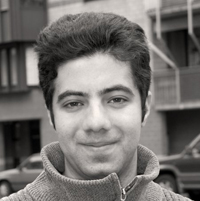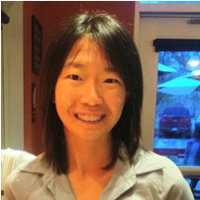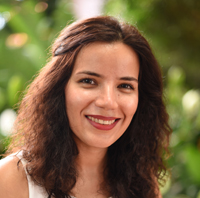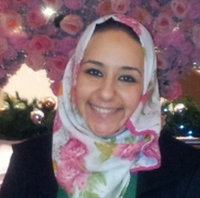This year’s annual Abstract Challenge was once again a successful event. We want to thank all that participated. This year we had nearly 50 submissions and our decision was a difficult one. Here are the selected winners.

This year, we had dual first place winners; Reza Sailani and Jingga Inlora of the Michael Snyder lab in the Department of Genetics at Stanford University. In Snyder’s lab, Dr. Sailani is the SNSF postdoctoral fellow. Sailani received his PhD in 2014 at the University of Geneva in Switzerland where he studied genetic variability and epigenetic alterations in Down syndrome individuals with congenital heart defects. His current research interest lies in how genomic variability leads to the phenotypic variability and disease risks. He studies pathogenic variations leading to disorders, mainly Mendelian diseases. He also studies longitudinal omics profiling of pre-diabetic and non-diabetic individuals over periods of respiratory viral infections and immunizations. Dr. Sailani’s abstract centered on the genetic determinant of essential tremor.

Jingga Inlora is also a postdoctoral fellow in the Snyder lab. Her research focuses on using next-generation sequencing and bioinformatics approaches to identify rare heritable mutations in Mendelian disorders. Using similar technology, she also studies how environmental exposures, in particular, air-borne microorganisms, affect human health. Dr. Inlora received her PhD in microbiology and immunology from the University of Michigan – Ann Arbor in 2015 where she studied the assembly process of HIV-1 particles and the evolution of retroviruses. Dr. Inlora’s abstract focused on identifying genetic variants associated with rare Mendelian diseases.

Samaneh Farashi was selected as our second place winner. Farashi completed her Master of Science’s degree in gene therapy of anemia utilizing RNA interference gene silencing in 2010. Following her MSc, she worked as a research assistant in several institutes in Iran, as well as Erasmus Medical Center in Rotterdam and Utrecht University in the Netherlands. In 2016, Samaneh joined the Queensland University of Technology, Brisbane, Australia under the supervision of Dr. Jyotsna Batra where she is investigating functional mechanisms of genetic variations identified by Genome Wide Association Studies (GWAS) using post-GWAS approaches in prostate cancer. Farashi’s abstract presented an association study of miRNA-regulatory SNPs with prostate cancer risk, prognosis and progression.

In third place is Daniah Trabzuni, a postdoctoral researcher at the institute of Neurology at University College London. Dr. Daniah is working on a project assessing the correlation between genetic SNPs and non-SNP variations with gene
expression (eQTL) and alternative splicing regulation (sQTL) in control post-mortem human brain tissues from different regions, which support different functional roles. She is investigating specific targeted regions in detail to understand the link between GWAS loci and the functional expression in the human brain. Dr. Trabzuni submitted an abstract centered on this work in Parkinson’s disease.
Each of our winners will be presenting their work to the community via a live webcast in the coming months. We will announce their presentations in our blog as the time nears.
Again, we thank everyone who participated in this year’s contest.